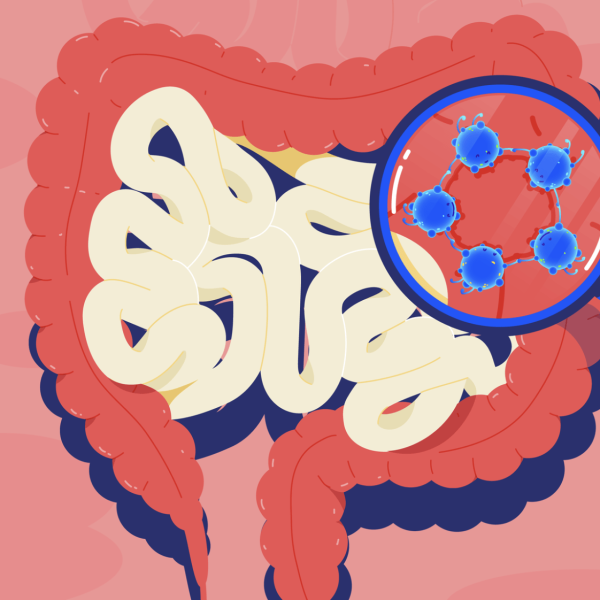Imagine your gut as a bustling city filled with tiny micro-residents working tirelessly to keep you healthy and happy, but what happens when this city falls into chaos?
Our gut is often referred to as the “second brain,” and for good reason. This complex system of nerves, hormones, and bacteria is in charge of digesting our food, absorbing nutrients, and supporting our immune system. Unfortunately, our modern lifestyle can disrupt the delicate balance of our gut, leading to an unhealthy gut. Let’s dive deeper into it!
The gut produces more neurotransmitters, such as serotonin and dopamine, than the brain!
The Role of the Gut Microbiome
Have you ever wondered what’s happening inside your gut that affects your overall health and well-being? Well, the answer lies within your gut microbiome – a complex and diverse community of microorganisms in your digestive system. This microscopic world plays a crucial role in digesting food, absorbing nutrients, and supporting your immune system.
Signs of an Unhealthy Gut
Maintaining a healthy gut microbiome is essential for digestion, absorption of nutrients, and a strong immune system, and recognizing the signs of an unhealthy gut is the first step in supporting it. Here’s what you need to look out for to detect an unhealthy gut:
Digestive issues such as bloating, constipation, and diarrhoea
If you’re regularly experiencing digestive issues, it’s a sign that your gut is out of balance. A healthy gut should be able to digest and eliminate waste efficiently, without discomfort. In fact, according to a study published in the Journal of Clinical Gastroenterology, up to 70% of people with digestive problems have an unhealthy gut.
Food sensitivities and allergies
An unhealthy gut can lead to food sensitivities and allergies, as it affects the way our body processes food. In a healthy gut, the bacteria help break down food and produce nutrients, but when the gut is disrupted, it can lead to an immune response to certain foods.
Skin issues such as eczema, acne, and rashes
Our gut and skin are connected, and an unhealthy gut can lead to skin issues. According to a study published in the Journal of Clinical and Aesthetic Dermatology, up to 90% of people with skin conditions have an unhealthy gut.
Fatigue and brain fog
An unhealthy gut can also lead to fatigue and brain fog, as it affects the way our body absorbs and utilizes nutrients. In a healthy gut, the bacteria help break down food and produce nutrients, but when the gut is disrupted, it can lead to malnutrition and brain fog.
Mood swings and anxiety
Our gut and brain are connected, and an unhealthy gut can lead to mood swings and anxiety. In fact, up to 95% of our body’s serotonin, a neurotransmitter that regulates mood, is produced in the gut. When the gut is disrupted, it can lead to imbalanced levels of neurotransmitters and mood swings.
How do you Naturally Fix your Gut?
Don’t let an imbalanced gut microbiome hold you back. If you’ve noticed any of these signs of an unhealthy gut, don’t worry, there are plenty of ways that can make to help restore balance to your gut. Here are some tips to get you started:
Eat a balanced diet rich in fibre and probiotics
A diet rich in fibre and probiotics can help promote a healthy gut by feeding the good bacteria and keeping the gut balanced. Try incorporating foods like whole grains, fruits, and vegetables into your diet.
Limit processed and sugary foods
Processed and sugary foods can disrupt the gut and feed bad bacteria. Try limiting these foods and incorporating more whole foods into your diet.
Stay hydrated
Staying hydrated is important for a healthy gut, as it helps keep things moving and eliminates waste efficiently. Make sure to drink plenty of water throughout the day.
Exercise regularly
Exercise can help improve gut health by promoting the movement of waste through the gut and keeping the bacteria balanced. Try incorporating exercise into your daily routine.
Manage stress
Stress can disrupt the gut, so it’s important to manage it. Try techniques like meditation, deep breathing, or yoga to help manage stress.
Conclusion
Paying attention to your gut health is important for overall well-being. An unhealthy gut can lead to a range of symptoms and health issues, but the good news is that there are many ways to support a healthy gut microbiome. So, make sure to give your gut the love and attention it deserves, and let’s work towards a happy and healthy gut for life!
Read more




























